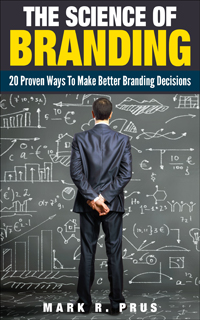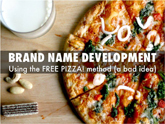News
A Huge Trademark Mistake
One of the unique features of my NameFlash name development process is how I do a trademark screen for the names I am planning to recommend. I do this trademark search because I want to present names that are available from a trademark standpoint. I also check domain name availability and common law use, because you do not have to register a trademark to own a trademark if you establish use.
What Is P&G’s “Secret of Seven?”
A few years ago, Procter & Gamble launched the Olay Total Effects line, and introduced us to “Anti aging skin care products that moisturize and fight seven signs of aging.” In case you don’t know, the “seven signs of aging” are “look of fine lines and wrinkles, rough texture, uneven skin tone, surface dullness, appearance of prominent pores, noticeability of age spots, and dryness.”
Interesting. And wouldn’t you know it, Olay Total Effects works on all seven signs of aging (imagine that).
The skeptic in me thought that maybe there were more signs of aging that Olay was not designed to work on, but I let it go, figuring that I was not an expert on skin care.
Is the iPad Name Going Generic?
Like many professional name developers, I opened 2010 by making fun of the Apple iPad name. Steve Jobs gave a strong case for naming the “tablet pc” in a way that was consistent with previous Apple naming conventions (iPod, iTunes, iPhone), but many of us poked fun at the similarity of the name with feminine hygiene products.
Who’s laughing now?
It’s All In How You Say It
A tutoring organization, Chyten (www.chyten.com), opened a new location near my home. Chyten tutors kindergarteners through graduate students, and the website looks nice enough—pictures of happy college students sitting cross-legged on the quad, a parent login, news and events…but the question is, how do you pronounce it?
When Acronyms Go Bad…or Just Sloppy Naming Work?
Name developers occasionally are asked to develop acronyms for clients. Sometimes acronyms are terrific short cuts that resonate. Who hasn’t heard of MADD (Mothers Against Drunk Driving)?
Sometimes acronyms are trouble. The CNN article has numerous examples of “bad luck” with unfortunate acronyms (e.g., when your acronym develops a bad meaning). Perhaps some of these acronyms are a result of bad luck…but I believe most of these cases are unfortunate examples of naming sloppiness and bad branding!
Is The Urban Dictionary A Bible For Branding?
The Urban Dictionary is a web-based dictionary of slang words and phrases. Anyone can submit to the Urban Dictionary, but submissions are reviewed by volunteer editors and are rated by site visitors. Some people in the naming business think the Urban Dictionary is the new “Bible for Branding.” I politely disagree.
Last year a new vodka launched, and there was considerable controversy over its name, RangTang (http://adage.com/adages/post?article_id=142601). Apparently in the Urban Dictionary, rangtang has a slang meaning that is sexual in nature.
Another Reason To Hire A Naming Professional
In the UK, Directgov, the sector of the government in charge of educating the public about the government, recently launched a site to explain Britain’s government to small children. It's called "Buster's World," and it features a cute dog named Buster who leads the site's patrons through a plethora of games, videos, and cartoons with the goal of giving children a basic understanding of how the British government works. Unfortunately, when the words "Buster's World" are entered into a search engine, the top result is not a friendly dog educating you about the government, but rather a gay porn fetish site having something to do with balloons (…?). Needless to say, Directgov is in the process of renaming their website.
Hiring a professional naming service such as NameFlash would have nipped this problem in the bud. We check trademarks, domain names and common law usage of the names we recommend, and very simply, this name would not have gotten through our screening process. Few non-professional namers conduct this type of screening and the result can be a disaster that leads to bad PR and the added cost of changing the name and all the materials associated with the name. In this case Directgov had an interesting idea, but clearly dropped the ball in screening, which is a terrible shame, as Buster the dog really is quite cute!
Can Your Brand Pass The “10 Second” Test?
Can Your Brand Pass The "10 Second" Test?
Aflac, the company that uses the duck as its advertising icon, has started a new "You Don't Know Quack" campaign.
Their new campaign challenges NASCAR driver Carl Edwards to explain in 10 seconds how Aflac policies help protect people. Carl's response, obviously scripted, was "If you are sick or hurt, Aflac pays you cash – fast – to help pay for things major medical insurance won't cover – things like car payments, mortgage and more."
Genius!
Do Google Codenames Make You Hungry?
Google is using names of sweets for its codenames for Android Operating System versions. Listed alphabetically the names thus far are: 1.5 (Cupcake), 1.6 (Donut), 2.0/2.1 (Éclair) and now, 2.X –to be named Froyo (which means Frozen Yogurt).
Am I the only one who finds this amusing? Some bloggers are actually attacking Google, saying that their codenames are sending the message that "sweets are good for you." Give me a break!
You Should Always Check International Communication of Your Name, or Risk This!
The photo below pretty much says it all.
 Assitalia is one of the biggest insurance companies in Italy. I am sure the company developed its name without thinking about international considerations. In Italy, the name is probably fine. But if they ever wanted to expand to an English speaking country…well, let’s just say there might be a problem.
Assitalia is one of the biggest insurance companies in Italy. I am sure the company developed its name without thinking about international considerations. In Italy, the name is probably fine. But if they ever wanted to expand to an English speaking country…well, let’s just say there might be a problem.
Most companies for which I develop names for insist that I do some sort of name verification to ensure that the names I develop have no problematic connotations in the major foreign languages. Clearly, Assitalia never thought of that!



